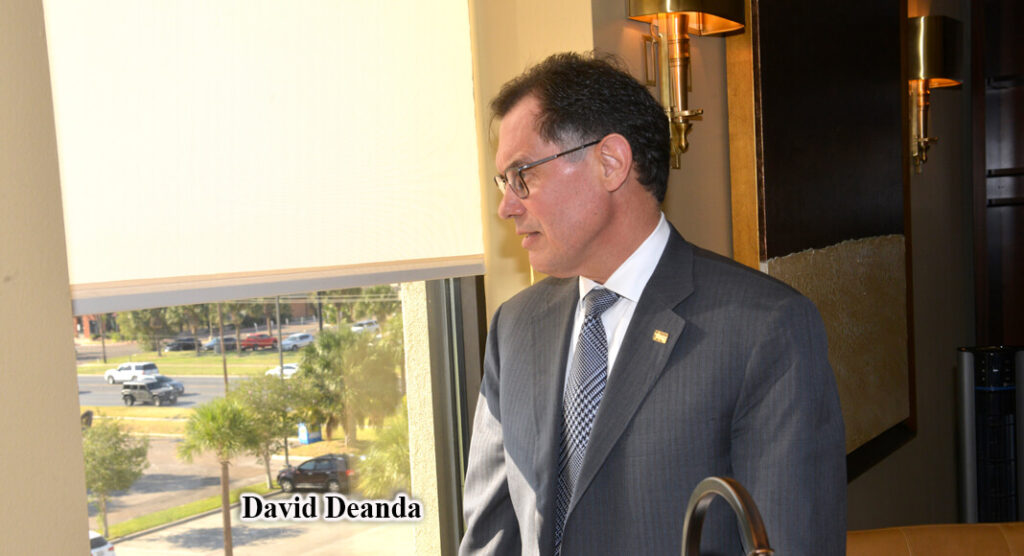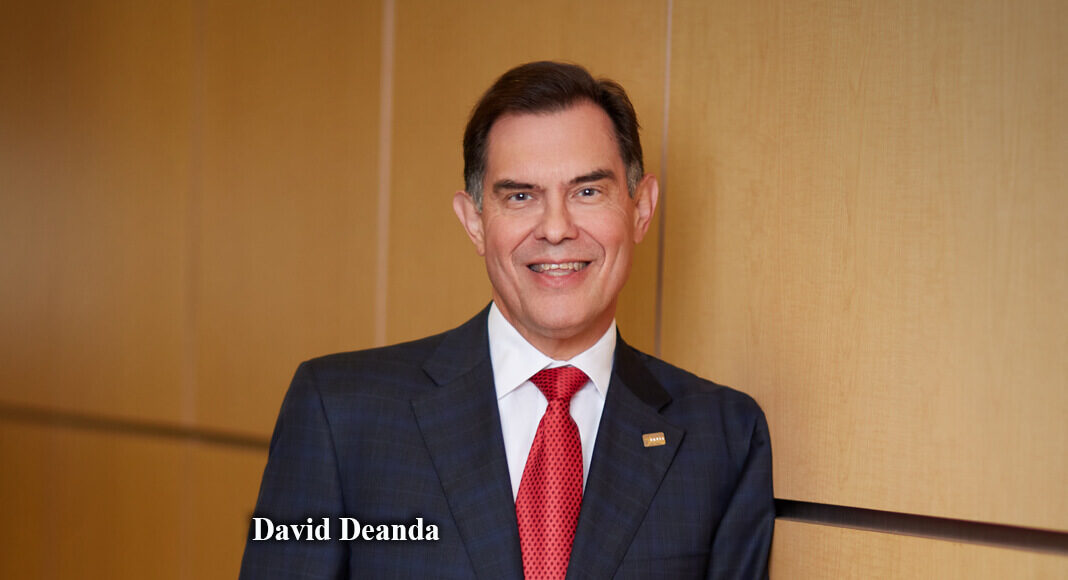By Roberto Hugo Gonzalez
No matter the industry, the only way to survive is to adapt and re-adapt to continuous changes. During the last eighteen months the COVID-19 pandemic has changed the world for everyone and is still plaguing the planet.
Lone Star National Bank (LSNB), a community banking institution, immediately implemented protocols outlined by the Centers for Disease Control and Prevention (CDC). LSNB’s main interest was and is to protect their clients and employees.
According to David Deanda, president of Lone Star National Bank, their strict adherence to CDC protocols allowed them not to close the doors to the public for a single day.
Deanda said that the lending environment has changed because of COVID-19. “We’ve seen more people having financial needs now than in the past.” He continued, “I feel confident that a new normal is approaching. However, there’s still a bit of uncertainty in the marketplace.”
He pointed out that a new-normal is close because of the number of residential houses sold. Another sign is that small businesses are beginning to expand, and the lending environment started to pick up again since the start of the summer.
Deanda said there are multiple ways to interpret COVID-19. “It could have been a time to pause and reflect or change the way we did business. However, people lost their lives, and we all feel the loss.”
The most challenging situation for the bank was the combination of technology and customers multiplied by the demand. “Customers were not coming out and preferred banking from home because they were scared of a face-to-face meeting.” He said, “The solution was zoom calls, a very efficient and successful way to do banking transactions. But we also found out that some customers are resistant to technology.”
Deanda says this is a new phase where technology plays a more significant role in banking. “Even though this new phase offers great alternatives, I encourage our bankers to visit with customers at their place of business as long as the customer is willing to meet face to face,” Deanda emphasized that a closer relationship with the customer is paramount for the bank and for the customer.
He pointed out that the future of banking is people, and today, under the current circumstances, this is the biggest challenge. “Right now, we have 38 open positions; we are always hiring.”
The bank chairman, Mr. Alonzo Cantu, once told him not to let go of the number one draft choice.
“Whether you have room in the organization or not, you always hire those people,” Cantu said.
The requirements to work at Lone Star National Bank are simple, and that is to work and satisfy customers.
“The new hire needs to understand that the customer is number one and always right!”
Regarding opportunities for businesses, Deanda said that they provide loans for small businesses, also SBA and 504 loans. They work with many government programs available to serve and help the small business from beginning to end.
He said that many banks stay away from startup businesses because they’re risky. “It takes more time to explain the processes. Most customers starting a business don’t understand the need for financial statements and tax returns.” He said, “What we try to do is train them on what’s essential so that they can grow their business.”
Deanda also said that “Nobody (or most people) likes paying taxes, but the more taxes you pay, the more money you qualify for in a loan. So, it’s a catch 22.”
His confidence in the area has no parallel, “The Valley is going to expand,” he said. “We’re going to become a medical hub of the future.” Adding that the medical center in San Antonio is being replicated in the Rio Grande Valley from here to Brownsville.
His opinion is that we all should start watching each other’s backs. “It’s no longer just Hidalgo, Cameron, or Starr counties. We need to start seeing ourselves as a core group along the Rio Grande, a metroplex.”

Deanda emphasized that no matter where you are doing business in the Valley, we need to work together. And we need to build the much-needed infrastructure for the explosive growth that is coming.
When asked what is so special about the Valley? He said, “Resiliency!” He continued, “We’ve been through the multiple peso devaluations, and now even COVID for two years, and businesses have been able to cope and survive.”
He mentioned that even though Mexico has not been shopping here for the last two years because of closed borders, we have been able to sustain ourselves. “Imagine what is going to happen when the bridges open along the Texas Mexico border for Mexican shoppers?”
Deanda continues to describe the Valley as he knows it. “We have the best of everything here, and when we start to learn to appreciate that, things are going to come around our way.”
It is true; today, we have a selection of major hospitals and physicians with specialties never seen in South Texas. He said, “We have colleges, universities, and many alternatives to get educated locally. We don’t have to travel somewhere else; we can do it all here.”
Deanda was born and raised in Kingsville and has been president of Lone Star National Bank since 2003. He always felt the desire in his heart to help people. He attended college to become a dentist, but as he said, “that was not God’s plan” and his path changed. His ability in mathematics and finance opened the doors in the banking industry and where he began to make his way.
His new career in banking took him to Carrizo’s Springs for three years and then moved to McAllen in 1990 to take a position with Texas State Bank as vice president. “I worked for Mr. Glen Roney; he recruited me and brought me here. I worked there for three years and then went to work with Lone Star National Bank,” he said.
Just recently, Deanda established the S. David Deanda Jr. Scholarship at Texas A&M Kingsville. This scholarship will help future business students from the Rio Grande Valley to further their education.
LSNB’s Future
Lone Star National Bank has an incredible story to tell. In 1983, the bank began doing business from a mobile home building and has grown to 36 branches all over the Valley, including San Antonio, Texas.
In the San Antonio market, Lone Star National Bank operates five locations. San Antonio is a solid market and promises many alternatives.
“On December 20th or 21st of this year, God willing, we will open in Brownsville to become branch number 37.” The location is strategic; it sits right at the entrance of the Port of Brownsville.
In South Texas, he sees the mid-Valley as an area for expansion, but it will be strategic with small branches and always close to the need and growth of the area.
Deanda started his banking career with Lone Star National Bank in 1993, precisely ten years after the opening of the central bank. He took part in the grand opening of the bank’s second location on Lindberg Ave. in McAllen, and thereafter of all locations inaugurated by the bank.
Since its inception, and that’s 38 years ago, Lone Star National Bank has been a role model bank, especially when you talk about giving back to the community. Deanda says, “We pride ourselves on doing that. I think businesses should be measured not by how much money they make, but what they give back to their communities,” he said.
He can attest to that since he has been with Lone Star National Bank, it’s been about education, helping and getting involved with the community, not just about finances or investments. He added, “Taking on leadership roles, that’s one thing we expect from our bank officers.”
The words he used in this interview that still resonate are, “Let’s watch our backs; resiliency; we can do it all here; and give back to the community.” But let’s not forget “we are a core group, and let’s build the infrastructure needed,” he said.
David Deanda is proud to head Lone Star National Bank, the largest Minority Bank in the nation that is privately owned.















